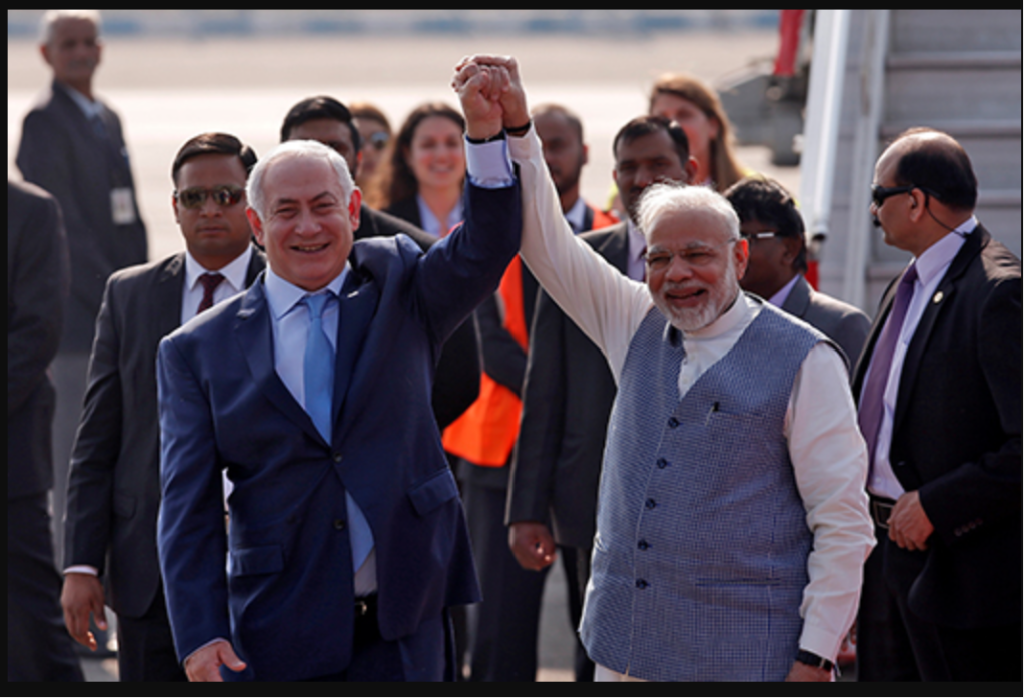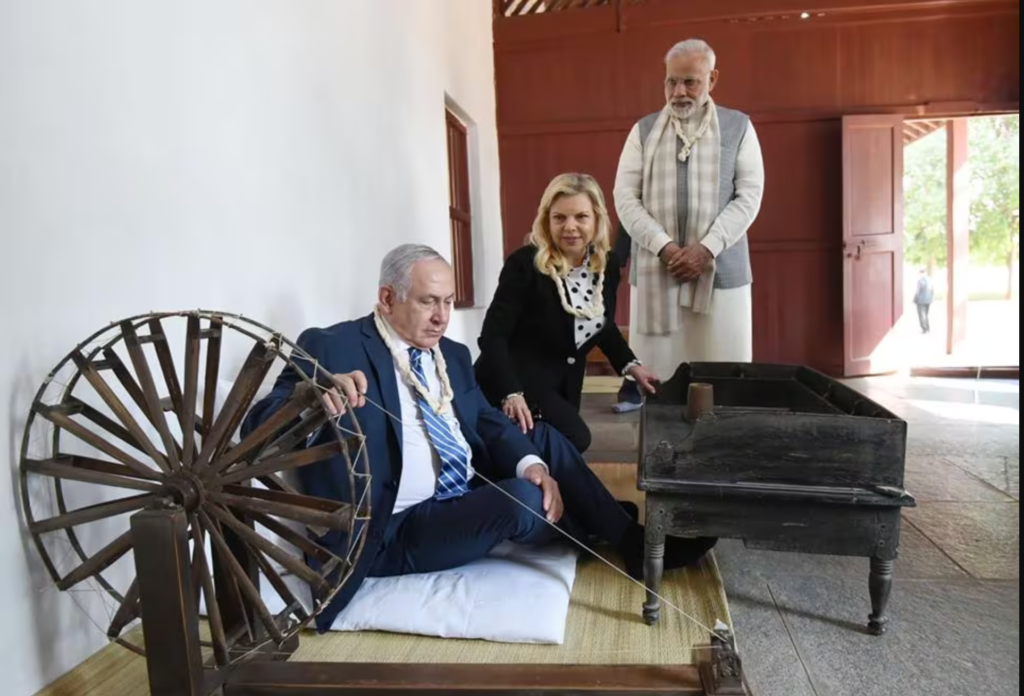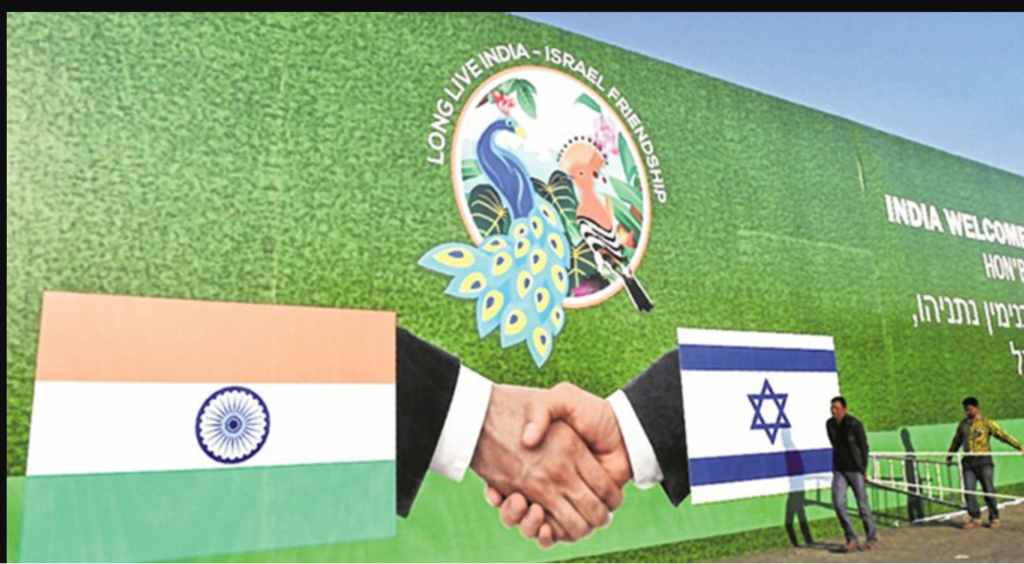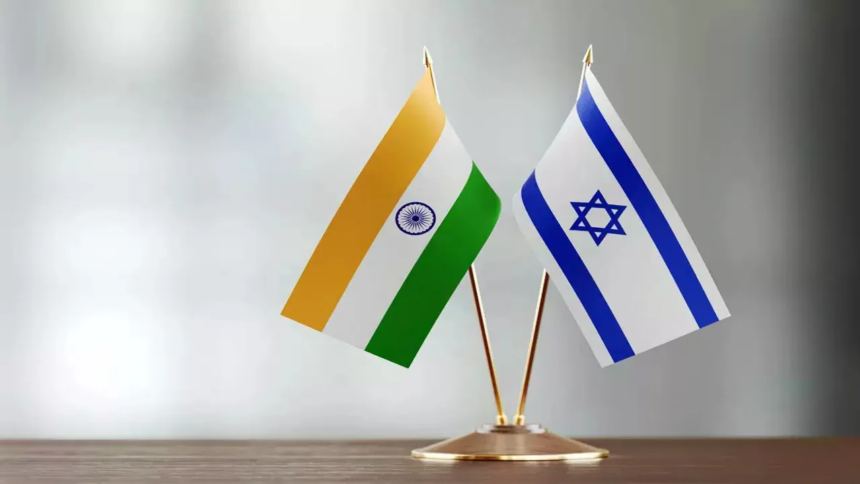Introduction
India’s Support for Israel is a subject of increasing global interest. The cooperation and support that India extends to Israel in various domains, including defense, technology, and trade, have raised questions about the reasons behind this partnership. In this article, we will explore the complex dynamics of India’s relationship with Israel and the factors that underpin this multifaceted alliance.
Historical Context : India’s Support for Israel
India’s support for Israel must be understood within a historical context. The two nations formally established diplomatic relations in 1992. Prior to that, India did not have formal ties with Israel, primarily due to its historical support for the Palestinian cause.

- Changing Geostrategic Dynamics: The end of the Cold War and the evolving geopolitical landscape prompted India to reevaluate its foreign policy. The strategic importance of Israel as a military and technological ally became increasingly apparent.
- Shared Interests: India and Israel share several common interests, including counterterrorism, intelligence sharing, and defense cooperation. Both nations have been targets of terrorist attacks and have a vested interest in addressing security challenges.
Defensive Capabilities and Technology
One of the significant aspects of India’s support for Israel is its interest in Israeli defense capabilities and technology.
- Militarily Strategic Partner: Israel is known for its advanced defense technology, which is highly appealing to India. The two nations engage in defense cooperation, including arms deals and joint military exercises.
- Counterterrorism Cooperation: Both India and Israel have experienced acts of terrorism and see the benefit in working together to counter this threat. Israel’s expertise in this area is a valuable resource for India.

Economic and Technological Ties
India’s relationship with Israel extends beyond defense. The two countries have collaborated in various technological and economic domains.
- Agriculture and Water Management: India has benefited from Israeli expertise in agriculture and water management, particularly in arid regions. Israeli innovation in these areas has helped improve crop yields and water conservation.
- High-Tech Cooperation: Israel is a global leader in innovation and technology. Indian companies have sought partnerships and investments in Israel’s thriving tech industry.
ALSO READ :A Complex History: Israel, Gaza, And Palestine Relations
Balancing Act in the Middle East

India’s support for Israel does not imply that it has abandoned its relationship with other nations in the Middle East. India maintains strong ties with various Middle Eastern countries, including Saudi Arabia, Iran, and the UAE.
- Energy and Trade: India’s energy needs and economic interests necessitate a balanced approach to its Middle East policy. It seeks to maintain positive relations with multiple countries in the region to secure energy resources and trade opportunities.
- Diaspora and Cultural Ties: India has a significant diaspora in the Middle East, particularly in the Gulf countries. Cultural and people-to-people ties continue to be vital components of India’s foreign relations.
Sustainable Diplomacy and Multilateral Engagement
India’s approach to international relations emphasizes multilateral engagement. It maintains diplomatic relations with Israel within the broader framework of its foreign policy. This enables India to collaborate on global issues while addressing its specific interests.

- United Nations: Both India and Israel are members of the United Nations, allowing them to cooperate on international issues, such as climate change, sustainable development, and peacekeeping.
- Counterterrorism: India and Israel collaborate on counterterrorism efforts not only bilaterally but also within international forums. The United Nations, Interpol, and other organizations provide platforms for shared initiatives.
- Trade and Economic Alliances: India’s relationships with both Israel and countries in the Middle East contribute to its economic growth and trade opportunities. These engagements are not mutually exclusive but rather interconnected, enabling India to balance its economic interests effectively.
- Global Challenges: India and Israel share concerns about global challenges such as cybersecurity, public health, and climate change. They cooperate on research, development, and policy solutions within the international community.
Cultural and People-to-People Bonds
Beyond the geopolitical and economic aspects, India’s support for Israel has an essential cultural dimension.

- Diaspora: India and Israel both have significant diaspora communities. India has a Jewish community that dates back centuries, while Israel is home to Indian Jews, particularly from the Bene Israel and Cochin Jewish communities.
- Cultural Exchanges: Cultural exchanges and people-to-people contacts contribute to strengthening the bonds between the two nations. These exchanges encompass music, arts, academia, and tourism.
Conclusion
India’s support for Israel is rooted in a combination of strategic interests, technological cooperation, and diplomatic alignment. This partnership has grown stronger over the years, extending to diverse sectors of their economies and societies. It’s important to view India’s relationship with Israel as one element within the broader framework of its foreign policy, which is guided by its national interests and a commitment to maintaining balanced ties with multiple countries, including those in the Middle East. As international dynamics continue to evolve, India’s approach to engaging with Israel and the wider region will adapt to meet the complex challenges and opportunities of a rapidly changing world.
ALSO READ :Strengthening Ties: The Bilateral Relationship Between India And Israel




































